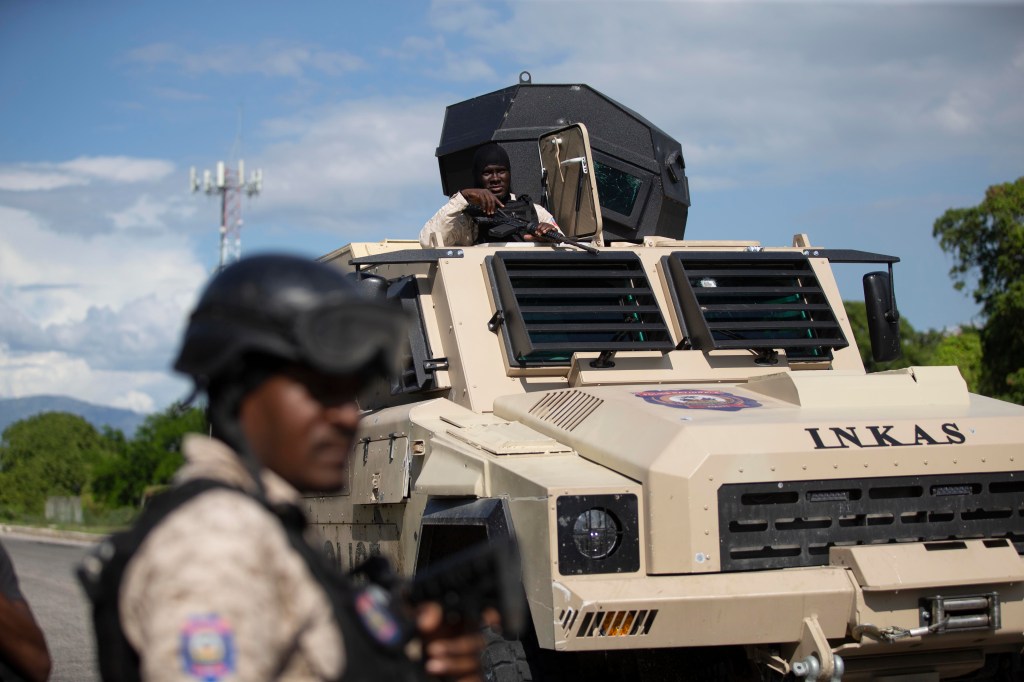New York, November 11, 2022 — Haitian authorities must take immediate action to identify the police officers responsible for the death of journalist Romelson Vilcin and hold them to account, and the Haitian police must stop attacking the press, the Committee to Protect Journalists said Friday.
On October 30, a group of at least a dozen journalists, including Vilcin, gathered outside the Delmas 33 police substation in the capital, Port-au-Prince, to call for the release of detained journalist Robest Dimanche, according to news reports. CPJ was not able to immediately determine whether Vilcin was among other journalists who were documenting the protest or if he was participating in the demonstration.
Members of the Haitian National Police beat and fired tear gas at the protesters as they tried to enter the station, and a canister hit Vilcin in the head and killed him, according to news reports and a statement from local trade group the Association of Haitian Journalists (AJH).
Another journalist at the protest, Raynald Petit-Frère, the president of the Haitian Collective of Online Media, a local journalists’ guild, told local news outlets that he heard the projectile hit Vilcin and saw the journalist fall to the ground. Vilcin remained there for over two hours before police took him to the Bernard Mevs hospital, where he died shortly after, according to those reports.
“Romselon Vilcin’s tragic and preventable death at the hands of Haitian National Police shows that Haitian journalists are caught between gang violence and police brutality and truly have nowhere to turn for safety,” said CPJ Latin America and the Caribbean Program Coordinator Natalie Southwick. “Haitian authorities must immediately investigate the violent police response to journalists covering demonstrations and advocating on behalf of their colleagues, hold those responsible to account, and ensure the police do not pose a deadly threat to local press.”
Vilcin was a correspondent for Génération 80, a radio station based in the northwestern city of Port-de-Paix, and worked with independent online outlets Jim Studio and Zenyez TV, according to the AJH statement.
At least five other journalists were injured during the police response to the protest, and police confiscated equipment from several journalists, according to Jacques Desrosiers, AJH secretary-general, who spoke to CPJ via messaging app and the AJH statement. CPJ was unable to confirm further details about these incidents.
Haiti’s Ministry of Culture and Communication later October 30 wrote on Twitter that the ministry “deplores the drama…at the Delmas 33 Police Station” that led to Vilcin’s death and is “confident that an investigation will be opened to determine the circumstances in order to identify and prosecute the perpetrator or perpetrators of this regrettable act.”
In a note shared with local media outlets and on their Facebook page, Haitian National Police Chief Frantz Elbé expressed sympathy for Vilcin’s death and wrote that “instructions have been passed to the General Inspectorate of the PNH to conduct an investigation into this incident to determine the circumstances” and identify those responsible.
A few hours before the protest, police detained Dimanche, a journalist for the privately owned broadcaster Radio Téle Zenith, while he covered a political demonstration in Delmas, a commune in eastern Port-au-Prince, according to news reports.
Dimanche was released around 10 p.m. on October 30 after behind held for over 10 hours, he told radio broadcaster Magik9.
Haitian police did not respond to an emailed request for comment.
Five journalists have been killed this year in Haiti in relation to their work, according to CPJ research. In the last week of October, radio host Garry Tesse was found dead after going missing in the southern city of Les Cayes, and investigative reporter Roberson Alphonse survived a shooting attack on his way to work in Port-au-Prince, as CPJ documented.
Editor’s note: The spelling of radio host Garry Tesse’s name has been corrected.
